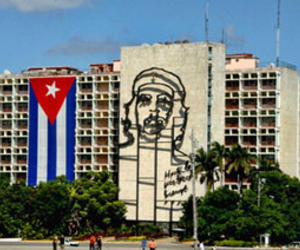A blogger's notes: Perestroika revisited
- Submitted by: manso
- Editorial Articles
- 04 / 26 / 2011

By: Renato Pérez Pizarro. Ex-Soviet envoy sees a Chinese-style reform. Scanning the Russian media in recent days, I have repeatedly read the word perestroika (reconstruction) in connection with the changes going on in Cuba.
The word surfaced again Monday in an interview in the website Newsland with Aleksandr Semyonovich Kapto, former Soviet Ambassador to Cuba (1985-88), former chief of the Soviet Central Committee's Ideology Department, and currently a politologist at the Russian Academy of Sciences.
In the interview, Kapto, 78, describes the ongoing process as "the construction of 'socialism with a human face' similar to the Brezhnev era and a Cuban perestroika similar to the Gorbachev era. If we carry out historical parallels with the Soviet Union, then Cuba today is characterized by both of these processes."
Kapto indirectly criticizes Fidel Castro for focusing too much in his first 30 years in power "on the moral incentives for building socialism – the role of ideas, the role of morality and so on. Unlike in the USSR, [that focus] did not address the economy, the financial incentives," until the late 1980s.
But by then, it was too late. When the Soviet Union folded, "all of Cuba's economy collapsed. [The Cubans] did not have their own source of economic growth. They did not get assistance and support from other countries. The catastrophe was compounded by the tough U.S. blockade. [...] The Cubans could not emerge from the crisis."
Kapto, clearly a conservative, now sees a silver lining. "The just-ended Party Congress has fixed this. More importantly, the Congress produced a well-articulated program of action that, according to the Cuban leadership, should correct the situation."
Asked if that is possible, Kapto replies: "In my view, such transformations are quite feasible. If you look at the list of economic innovations – the expansion of private enterprise, the market-relations front, the reduction in the number of civil servants, the abolition of rationing – for today's Cuba, that's absolutely real action."
Are Cubans finally moving toward capitalism, the interviewer asks.
"Not at all," is the answer. "The political system remains oriented toward socialism. One example of a combination of market economy and socialist doctrine is China. The Cuban authorities maintain the orientation of the socialist values, and along with it have mechanisms in a market economy.
"In my opinion, it is the Chinese model guided by the Cuban authorities," Kapto continues. "By the way, in my conversations with Fidel, he devoted much attention to reforms in China, often cited the Chinese as an example. And for that reason, the Cuban leadership understands that it is necessary to maintain political stability."
What are the chances of an internal uprising aided by the United States?
"In my opinion, the transformation of power in Cuba, mid-range, will not proceed in a revolutionary way but in an evolutionary way. At least, I have no grounds to think otherwise."
Kapto puts in a good word for Marino Murillo Jorge, the newly appointed economics czar, whom he knows "very well."
"By design of the Communist Party Politburo, [Murillo] would be responsible for reorganizing the state apparatus, for the changes in the economic sphere. Before that, he was a very good scholar, a minister of the economy. His purely human background is also very good. This is someone who can effectively manage. I give him the highest marks."
Source: //miamiherald.typepad.com/cuban_colada/2011/04/
Comments